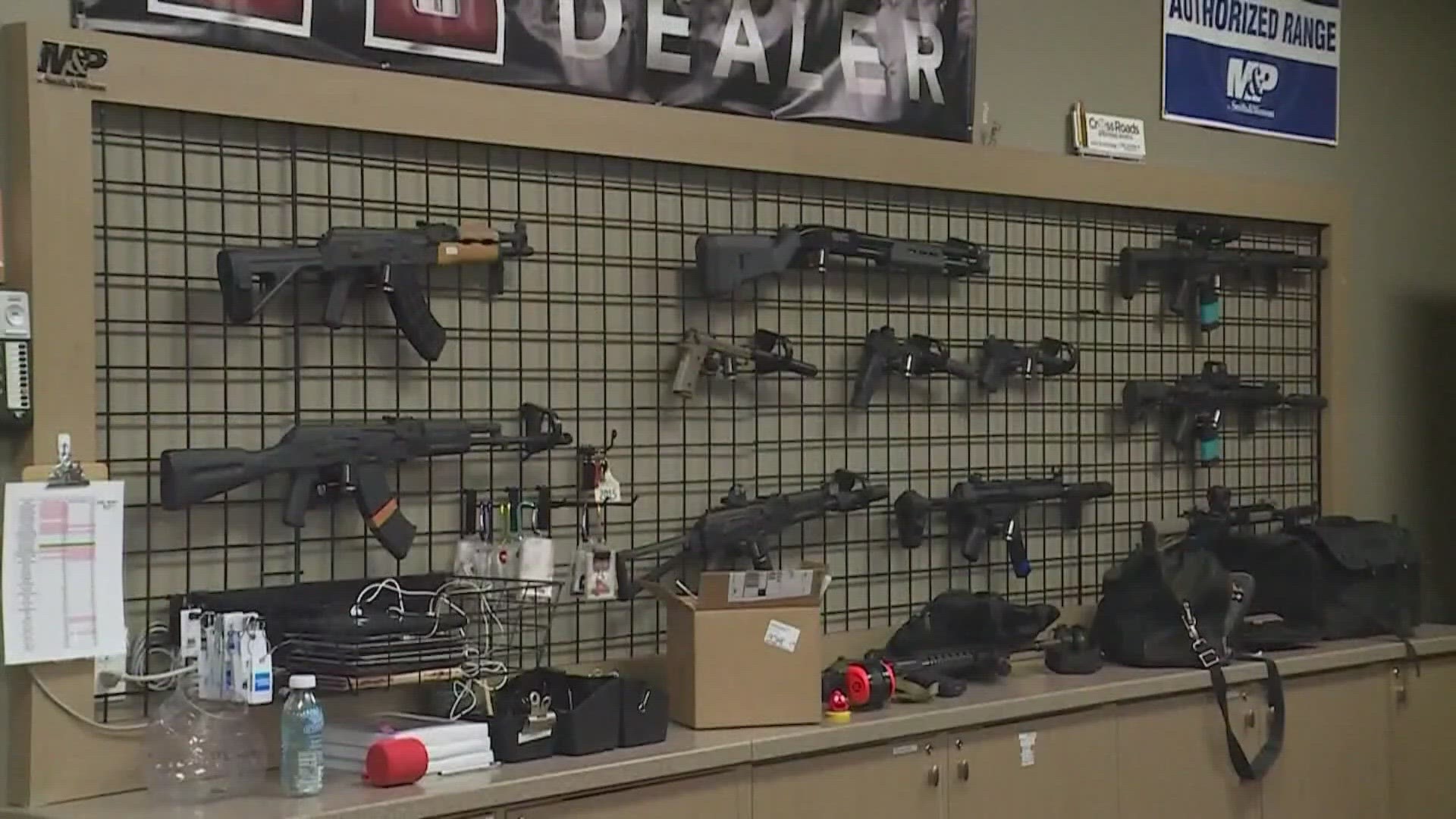AUGUSTA, Maine — The Maine State House and its adjoining Burton Cross Office Building were whisper quiet for much of Tuesday.
The halls would not likely be that dull again for some time.
Lawmakers spent one more day and night in the respective district homes before commuting to Augusta Wednesday morning to begin the next legislative session.
The office of Senate President Troy Jackson, D-Allagash, sent a press release announcing the Senate would honor the victims of the Oct. 25 mass shooting that killed 18 and wounded 13.
If not in the immediate moments after, it was nearly certain there would be lengthy debate about gun reform in the weeks and months to come.
Representative Vicki Doudera, D-Camden, founded the gun safety caucus and remained its co-chair Tuesday, when she met with NEWS CENTER Maine over Zoom. She believed common ground could be found on policy positions like red flag laws, universal background checks, and a waiting period to buy a gun. "Red flag laws" are the stricter cousin to Maine's "yellow flag law." Maine requires no background check for buying firearms and reverts to the National Instant Criminal Background Check System (NICS).
Maine voters have largely stood their ground during attempts to pass gun reform measures, including a 2016 referendum vote expanded background checks, which narrowly failed. Some opposed to the measure claimed the language was taken from out-of-state proposals that included confusing language involving hunting parties and family transactions.
"Is this kind of thing a challenge in Maine? It is a challenge," Doudera said of passing gun reform. "But what I think has changed since the Lewiston shooting is the realization for everyday Mainers that gun violence isn’t just something that we read about in the paper in other states."
Rep. John Andrews, R-Paris, said his party's first priority with regard to firearms would be protecting the state and federal rights of gun owners. But he planned to introduce a bill in the coming session he believed would save lives and protect licensed gun sellers at the same time—through a so-called "yellow alert system."
"If someone does something to trigger a statewide alert, FFLs (Federal Firearms Licenses)—or gun dealers—would get a text and a photo—kind of like an Amber Alert," Andrews explained. "We would call it a yellow alert system—basically telling them, 'Do not sell to this person. They are either wanted by the police or are in crisis.'"
Andrews said Mainers who shouldn't own guns can fall through gaps in the federal background checks, and felt his proposal benefitted all law-abiding Mainers.
"I think that would be very helpful for the state to heal, if we can work on positive solutions that don't infringe on people's rights, but go out of their way to help keep people safe," he said.
David Farmer represents the Maine Gun Safety Coalition which, in wake of October's mass shooting, stated its legislative priorities included a red flag law, a 72-hour waiting period, expanded background checks, and an assault weapons ban.
"Maine is full of responsible gun owners," Farmer said. "But, unfortunately, it's all too apparent now that we are not immune to gun violence."
Earlier that day, Farmer announced a group of around 300 gun safety proponents was expected to visit the state house Wednesday, including at least one family of a Lewiston shooting victim. They planned to speak to the press in one of the building's public spaces, and then seek out lawmakers—swapping policy ideas and gauging how each member felt about possible bills.
Farmer said the coalition was but one organization planning to attend, and would not dive into specific policy positions of the larger group; but said they would aim for perfection and settle for nothing that wasn't "better."
"If everyone works in good faith; if we pay attention to the facts; we look at policies that we can document and demonstrate that work; we can find a common ground to move forward," he said.

